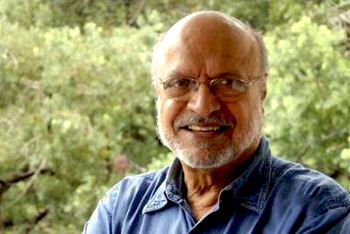Mumbai, Jan 3: "Good beginning to 2016", "Finally, HOPE", "The best decision" and "Welcome move" are some of the expressions that the members of the film fraternity like Madhur Bhandarkar, Anupam Kher, Kabir Bedi and Rahul Dholakia used to hail the decision by the government to form a committee headed by acclaimed filmmaker Shyam Benegal to revamp Central Board of Film Certification (CBFC).

The committee has been formed upon Prime Minister Narendra Modi's intervention in the growing issue related to the CBFC.
Bhandarkar, who frames the truth of the society into his films like 'Page 3', 'Fashion' or 'Calendar Girls', tweeted: "Welcome move by @PMOIndia and @arunjaitley ji to appoint noted film maker #ShyamBenegal ji as head of Censor Board revamp panel.#CBFC".
Benegal is a Dadasaheb Phalke Award winner, and is credited with films like 'Ankur' (1973), 'Nishant' (1975), 'Manthan' (1976) and 'Bhumika' (1977).
Dholakia, who is caught up with work on 'Raees' starring Shah Rukh Khan and marks debut of Pakistani actress Mahira Khan in Bollywood, said that 2016 has started on a good note.
He shared: "The censor board to be manthanized by #ShyamBenegal! Good beginning to 2016".
Kabir welcomed the 'good news' by saying that with the appointment comes a ray of hope towards breaking out of the shackles of the censor board. Anupam Kher also called the move as 'the best decision'.
The country's censor board has often faced flak from the society for running its invisible scissors from issuing diktat of cutting short a kissing scene of James Bond film 'Spectre'.
The 'Tum Bin' director Anubhav Sinha wished Benegal luck for his new endevour. He posted: "My best wishes to Shyam Babu. I suspect he will eventually have to deal with Hindutva and Sanskar both."
Filmmaker Vivek Agnihotri thinks that the move should not be co-joined with politics, as it only aims to do good for showbiz. He said: "CensorRevamp panel is not a committee. It's to abolish censorship. Forget Modi, it's good for us".
Actress and BJP member Vani Tripathi Tikoo feels "Artistic creativity and freedom should not get curtailed, people tasked with the work of certification should understand these nuances #CBFC", while filmmaker Ashoke Pandit also lauded the decision.
'Wazir' director Bejoy Nambiar has also hailed the decision.
"I think that's a great decision. Benegal sir is someone we all look up to as a filmmaker, I know that having him revamp the board itself is a big step in the right way and the right direction," Nambiar said.
"I'm really looking forward to things changing because it's high time we take the censor board a bit more seriously than the way it's been handled in the last couple of months. I'm really forward to what will happen in the future," he added.





Comments
Add new comment